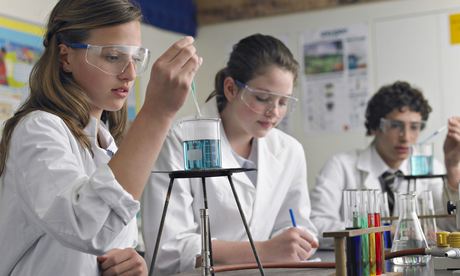Let’s get practical

After being at the ASE Conference for three days, I visited my mother. “Well” she greeted me, “you made the news.” I didn’t; she meant that the conference lecture by Sir David Bell was covered in the media. Good. Science education is important and he made some telling points.
It’s not difficult to see how the pieces are now falling into place regarding practical assessment in secondary science. Most of the A level specifications are now signed off; they have lists of stipulated practicals that will have to be undertaken and the courses will finish with exams in which 15% of the marks will go on questions testing understanding of these activities. Ofqual have proposed that GCSE science courses follow a rather similar pattern.
I understand the concern over this. If practical work is not directly assessed there is a fear it will get a lower profile and if schools once start losing their capacity to support practical work it will not be easy to get it back again. The problem is that in this world of high stakes assessment, anything that gets marks has to be heavily regulated and it’s difficult to reconcile this with anything that feels like scientific enquiry. If it doesn’t get marks it may get marginalised. The folklore has already started circulating that ‘they’ don’t value practical skills.
I have to say that I think the fears are misplaced. I think including investigations in the specification secures their place, I think that teachers will feel that doing the activities is the best way of getting students to understand what they’re for and how they work and I think that they stand a better chance of being integrated with teaching than controlled assessments are. I haven’t found anyone, at any level, who thinks that practical skills aren’t important but I’ve repeatedly come across a deep desire to give them a more authentic role.
Two of our Heads of Science from Cornwall, Jo Gough and Kate Goodwin, came to the conference to talk about their experiences of piloting the practical competencies, both at GCSE and at A level, and using these to provide feedback to students about skills they had mastered and areas for development. They were tremendously positive about this and clearly of the view that moving the dialogue with students away from ‘how many marks they’d get for their practical’ and towards ‘this is how to get better at using equipment and gathering data’ was nothing but good news and that their departments were looking forward to this change. You can see and hear them at www.aqa.org.uk/subjects/science/Science-practicals
Incidentally it was their first time at the conference and they thought it was great. If you’ve not been before, make the effort next year. Birmingham University, Jan 7th to 9th 2016. You might not make the news but you’ll get the heads up on some key issues. http://www.ase.org.uk/conferences/annual-conference/
Ed Walsh is Series Editor for Collins Key Stage 3 Science and a Science Consultant for Cornwall Learning.


